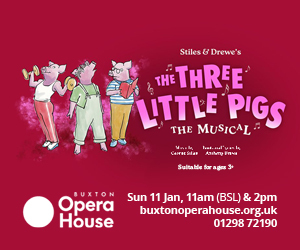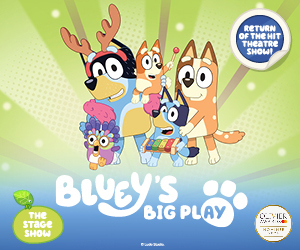Primary Times - the definitive what’s on and where to go family guide of activities and events for children of primary school age. Things to do with your kids during the school holidays including arts and craft activities, music and theatre for children, parties, competitions, days out, and family attractions along with term time drama schools, dance classes, after school clubs and sports activities. Things to do at a place near you!
Mental Health in Schools
Mr Frank Thompson
Headteacher of S. Anselm's
They say it takes a village to raise a child and I am sure every parent will recognise the feeling of gratitude when someone offers to look after the children for a moment. It isn’t just that parents help each other out because we know we might need the same favour another time. There’s something deeper. We feel a calling to help children. We want them to be happy.
Some of us are fortunate to be teachers and to live out that positive instinct in our working lives. What’s more, we do it within a community which has the same, shared purpose.
In the modern world it can be hard to find a ‘village’ community though I believe in Derbyshire we are more fortunate than most in that respect. A community provides a place of safety, a network of friendship and a place where we learn that cooperation is superior to conflict as we tackle competing interests.
In the past year, as a large percentage of the UK’s parent population added the role of ‘home-schooler’ to their responsibilities, we have learnt a lot about our children and their schools in the process. At S. Anselm’s we’ve been overwhelmed by the gratitude of our parent body. Parents had to do a lot of work during lockdown to support learning and I think most will look back on this year as a time when they grew closer to their children as a result.
On the other side of the screen, staff were also incredibly busy. Every teacher will remember how demanding it was to switch to online education. We had to learn new skills on a weekly basis but the objective to keep the learning going was achieved.
However, we knew our belief that children learn best when they are secure and happy meant there was more than just teaching to do. Being isolated at home meant that our pupils were going to miss the friendship and fun of being with their peers. It was crucial they had as much contact as possible.
We therefore had daily tutor periods where children not only spoke with their tutor but also had the chance to chat, face-to-face with each other.
Getting the balance right meant speaking with the children and consulting with parents. Everyone found online teaching and learning very tiring. Live lessons had their place but supported, independent study mattered too. What was crucial to keeping the learning going, was assessment. With parents’ support, children were turning in work for marking and receiving positive feedback. This, I believe, is where our pupils really shone. They fully engaged with the learning programme and as a result largely retained what they had been taught.
Children needed time away from the screen too. Our sports department were endlessly imaginative in the activities and challenges they set for the children. We even managed a virtual sports day with an unforgettable rolling pin relay race. They also organised a virtual race across the Atlantic to our namesake in the USA, with children entering distances they had run, cycled or rowed into our website.
We also encouraged fun with a weekly themed ‘Feel Good Friday’. We celebrated Martin Luther King Day by dressing up as our dream jobs, we shared pictures of our VE celebrations, we raised awareness of diversity by each dressing in our house colours with the message that we are all different but all equal.
We continued with our PSHE throughout the year, including a children’s mental health week and an anti-bullying week. These themes also reminded pupils that the door was open to approach a member of staff if they needed to share concerns, and at times, some of them did and received the support they needed.
It was important to share too. On our parent portal we had a Happiness Wall where children could see their achievements at home celebrated by the whole community.
With a strong musical tradition, lockdown did not prevent us having our summer concert. Our Director of Music, Mark Percival, compered live the home performances of our pupils, each of which had been pre-recorded. The grand finale was the 1812 Overture, performed by our orchestra. Each instrument had been recorded separately and then stitched together to create the finished piece. It really was spectacular and provided a well-timed boost to the whole community.
We made school life as lively and as diverse as possible during lockdown but of course it was no substitute for actually being back together. So, in March we were all incredibly excited, and of course a bit nervous too, about coming back to school. We knew it wasn’t going to be easy to make the transition and that some children would be particularly anxious having not been with their peers for so long.
We wanted to achieve two pastoral objectives in planning for our return. The first was to make it as stress free as possible and the second, to give pupils things to look forward to when back in school.
We met with the pupils, in bubbles, for assemblies on the first day. We expected quite a few children would be worried about getting something wrong and being in trouble. The key messages were; not to think they were the only one finding the first day difficult, talk to us if they were worried and to remind them of the simple rules of behaviour so they could avoid making mistakes.
Then of course, it was to draw everyone’s attention to what there was to look forward to. We had a painted Easter egg competition, which produced some hilarious scenes, including three eggs looking very like Harry, Meghan and Oprah.
We also plan to get Drama back on the map and what better than a Shakespeare week in June, performed in the school gardens?
Whilst a number of trips, sports fixtures and social events still have question marks over them, we will find ways of using the beautiful Derbyshire countryside to ensure the pupils have a happy summer term. Indeed the children are part of the planning too. They are planting and growing vegetables and flowers for our first ever horticultural show at the end of June.
As a small school we find we are able to get to know all the children and their families well. It helps us ensure each one of them is safe and happy. There are times when a child needs extra support and we dedicate a lot of time to ensuring they get this.
Day trips, Feel Good Fridays, drama in the garden, painted eggs and growing vegetables may seem to be a distant second to academic catch up and GCSE assessments. It turns out they are vital. Fun together, creativity and taking up longer term challenges make children happier and this brings us back to the S. Anselm’s ethos - happy children learn better. We strongly believe that this is the direction of causation: happiness leads to success.
www.sanselms.co.uk







